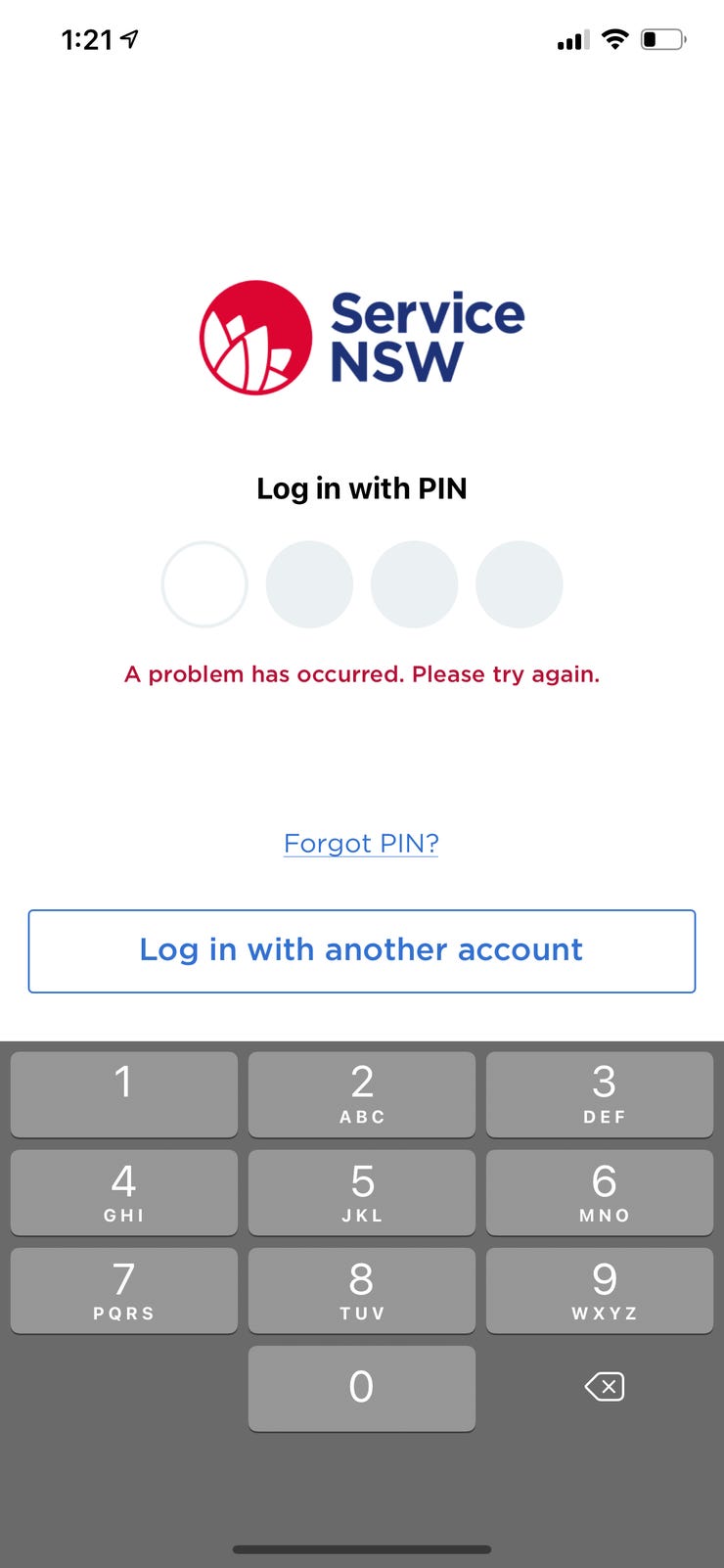Service NSW app back after two hour outage

The New South Wales government's Service NSW app suffered a two-hour outage on Thursday, rendering citizens unable to check in to businesses and venues across the state through the app.
A spokesperson for the Department of Customer Service told ZDNet the outage was unexpected.
"This afternoon Service NSW App experienced an unexpected outage preventing some customers from checking in with the COVID Safe Check-in tool. The outage lasted for 2 hours and is now resolved," they said.
The QR code-based check in system is mandatory for hospitality businesses and hairdressers. If businesses do not use the Service NSW QR code check-in system, they face AU$5,000 fines, closure of the business for a week, and should the venue further fail to comply, potentially a month's closure.
The mandatory use of the Service NSW QR code was first announced last month, with Minister for Customer Service Victor Dominello adding last week that over 50,000 businesses were already on board, and 2 million people have used it.
Read more: NSW says QR codes are the most effective system for COVID-19 contact tracing
Government advice on the check-in arrangements says customers who do not have the app can still register at a venue via an online form, but usage of the app allows for increased accuracy should the need to contact trace occur. It also allows for people to quickly move in and out venues and lessens the chances of congregation around business entrances.
"It is vital that customer contact details are still collected digitally. In the event of an outage, customers and businesses are encouraged to use the Service NSW check-in web form for all check-ins," the spokesperson said, noting the Service NSW web form was not impacted by the outage.
"Customers can access the web form by scanning the QR Code or businesses can display the Check-in web form on their own devices for customers to use," they continued. "Alternatively the customer record can be in the form of a spreadsheet or any other form of digital entry that can track customer check-ins and protects the privacy of your clientele."
The department said in circumstances which prevent the use of electronic methods, information gathered via paper must be entered electronically within 12 hours.
Citizens could still use the federal government's problematic COVIDSafe app to monitor, in theory, if they've been in contact with someone who has tested positive for COVID-19. The app has cost millions to create and just shy of AU$7 million to promote. It was updated in late November but Australia's tech community is still convinced the government should do what New Zealand has done and adopt the COVID-19 contact tracing framework developed by Apple and Google.
As of Thursday morning, NSW Health said it was currently tracing 114 COVID-19 cases, none of whom are in intensive care. There were no local cases reported in the last 24 hours but six were reported in returned travellers.
Since the start of the pandemic, the total number of COVID-19 cases in NSW is 4,795.
The Service NSW app in October 2019 was knocked offline when citizens flocked to their smartphones to set up digital copies of their driver's licence.
Service NSW early last year experienced a cyber attack that compromised the information of 186,000 customers. Following a four-month investigation that began in April, Service NSW said it identified that 738GB of data, which comprised of 3.8 million documents, was stolen from 47 staff email accounts.
The NSW Auditor-General in December released her office's report into how Service NSW handles personal and business information, which found the breach was actually a pair of phishing attacks across late March and early April -- the spoof email mimicked an Office 365 warning -- that led to a fake Office 365 log-in page from where credentials were harvested.
"Service NSW is not effectively handling personal customer and business information to ensure its privacy," the report opened with.
"It continues to use business processes that pose a risk to the privacy of personal information."
